Track 1 : 25/06/2021 Morning : 9:30 am -1.00 pm and Afternoon: 2:00 pm -5.30 pm
Category: Full Day Tutorial
Date: 25th June 2021
Time: 9.30 am to 1.00 pm and 2.00pm to 5.30pm
Sponsor: Microdevices Technologies and SafeTTy Systems Ltd. (UK)
Topic: Foundations of Reliable Embedded Systems
Speaker: Dr. Michael J. Pont was awarded a BSc degree (in Electronics and Electrical Engineering) by the University of Glasgow (UK) and a Ph.D. (in Computer Science) by the University of Southampton (UK). Dr. Michael J. Pont is the Founder and CEO of UK-based SafeTTy Systems Ltd, a company that provides support for organizations that need to create real-time embedded systems. Previously, he was Professor of Embedded Systems Engineering at the University of Leicester (UK), where he established the Embedded Systems Laboratory, invented the PTTES “pattern language”, and led teams that developed the “NISA” safety agent, and the first single- & multi-core processors that were designed specifically to run TT software. During his time with the University of Leicester, Michael supervised more than 20 successful Ph.D. projects.
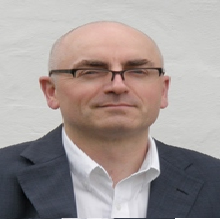
Speaker: Mr. Govind Gaundalkar is Engineer at Microdevice Technologies. He is certified by SafeTTy Systems UK up to Level 1 to conduct SafeTTy Certified program in the embedded systems domain. Embedded Systems are his passion. He likes to train people in the embedded systems domain. He is Interested in microcontroller/microprocessor architectures. Worked on 8085 and 8086 intel architectures. He was working on 8051 core from Silicon labs and Worked on ARM architecture for the Cortex M3 and Cotex M4 core. He is Comfortable in using Texas Instruments parts for the ARM architecture. He worked on developing systems using KEIL or Code Composer Studio IDE. He is currently working on TT architectures for embedded systems with MSP architecture from Texas Instruments.
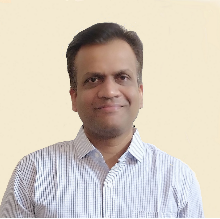
Abstract: The tutorial is about the industry-proven approach to the development of software for reliable, real-time embedded systems, based on the use of second-generation ‘Time Triggered’ (TT) architectures. What distinguishes time-triggered approaches is that it is possible to model the expected system behavior precisely. This means that: [i] during the development process, we can demonstrate that all of the requirements have been met; and [ii] at run time, we can detect problems very quickly. The end result is that we can have a high level of confidence that a TT system will either: [i] operate precisely as required; or [ii] move into an appropriate state if a problem occurs.
The above characteristics mean that appropriately-implemented TT systems provide a particularly effective means of meeting the requirements of various international safety standards, including IEC 61508, ISO 26262, IEC 62304, IEC 60730 and DO-178C.
Some of the prominent features of this tutorial are:
- A full-day tutorial session on TT architectures titled “Foundations of Reliable Embedded Systems” using Keil/STCubeIDE.
- Participation certificate from Microdevice Technologies will be awarded to candidates who successfully pass the two short and time-bound quizzes.
- The average marks of the two quizzes would be considered and the top 10 participants will receive embedded boards from ST Microelectronics.
- These 10 winners will also get a chance of taking a free live online course for 5 days duration (Monday to Friday) in the week following the International Conference. They will also get a participation certificate from Microdevice Technologies.
Track 2 : 25/06/2021 Morning : 9:30 am -1.00 pm
Category: Half Day Tutorial
Date and Time: 25th June 2021
Timing: 9.30 am to 1.00pm
Sponsor: JP Morgan India Services Pvt. Ltd.
Topics: RPA with Alteryx – Python
Speaker: Mr. Pascal Lopes is working as Vice President with J P Morgan Services India Ltd., Mumbai with a demonstrated history of working on Digital Transformation of Business platforms and Data along with Risk, Audit, Control, and Governance requirement. He is proficient in Leading and owning, Product Engineering, Application Development & Delivery. Pascal has managed Business Process Analysis, Design, and Development. Outside of work he likes to spend time with his Family and Numismatics.

Abstract: Analytic Process Automation (APA) is the technology that allows anyone in your organization to easily share data, automate tedious and complex processes, and turn data into results. With Analytic Process Automation, anyone can unlock predictive and prescriptive insights that drive quick wins and fast ROI.RPA automates repetitive tasks via bots, while APA can take inputs from bots, automate a complete data-driven business process, and then publish analytic outcomes directly to bots, RPA, and BPA systems. This tutorial will cover the concepts of RPA using Alteryx and Python.
Track 2 : 25/06/2021 Afternoon: 2:00 pm -5.30 pm
Category: Half Day Tutorial
Date and Time: 25th June 2021
Timing: 2.00 pm to 5.30 pm
Sponsor: Suven Consultants& Technology Pvt. Ltd.
Topic: Customer Segmentation for sustaining business in today’s competition
Speaker: Mr. Rocky Jagtiani is Head – Training & Content development, Suven Consultants & Technology Pvt Ltd an IT Training & Recruitment firm. He has a total Ed-Tech Experience of 20 years. He has completed Consulting Assignments :
- Database & Data Analytics trainer to RTI, CAG (Central Govt)
- Content developer & Expert Faculty at Upgrad, Simplilearn, and DataFolkz
- Corporate trainer to Accenture, EY, and up to 12 more MNC’s. He has trained around 15000 professionals over his entire career.
- Master Data Science Trainer & Project Consultant NMIMS University, Indore
He is a mentor to many top engineering colleges for training faculties through FDP’s and Bootcamps. He is involved in mentoring students on skill-based subjects like Problem-solving in Java data structures, Data Analytics, Statistics using Excel, Machine Learning, and Advanced ML focusing on NLP. He has training experience in Open Source Technologies like Java, Python, JavaScript, Databases& Machine learning. By profession, he is an excellent (+qualified) technology trainer in the following technologies – Web Development using PHP / Python / Java programming, Mobile App Development training in Android, Oracle SQL / PL-SQL programming, ML, DL using Python. As a passion, he loves to analyze the IT Job requirements of client companies and source people with the most relevant skill-sets. This helps both the Companies and the deserving Candidates. He is registered as a freelance trainer with LnD departments of 17 IT MNC’s in India. He loves to analyze data using tools like Qlikview, Tableau or Orange, As well as solve (real) problems using Python & Java. Has trained more than 15000 young working professionals (0-6 yrsWorkEx) till date. He has conducted a lot of android workshops across colleges in Mumbai. Many of the Certifications done are Oracle Database Associate, Google Analytics, Pandas& NLP, Oracle Certified Java Professional, Python & Machine Learning, Hacker rank certified. Interests- Cycling and walking (Keep healthy for higher productivity), Organizing Social Events (Acting as a volunteer in Social Causes and awareness).
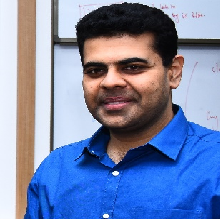
Abstract: It’s a well-known fact that eCommerce businesses are growing by the day but at a heavy cost per customer acquisition. In such cases, no company can afford to lose customers. There is a strong will and need to segment customers and serve them better ensuring they remain with the business for long !!
Application of mentioned topic :
Customer Segmentation is applicable to all domains, mainly Ecommerce, Retail, Banking & Insurance, Logistics, Finance.
The few examples, listed below would easily explain a layman about this :
- Used by Jio-mart, Dmart, Amazon Pantry, Bigbasket, and Grofers to decide what products to target to what type of customers.
- Used by Shopping Chains like Pantaloons and Shoppers Stop to understand customer profiles and accordingly decide the new chain of product launches.
- Used by electronic store chains like CROMA and Reliance Digital to offer different consumer loans and discounts across product categories.
- Used by all Banks ( most effectively by ICICI, HDFC, SBI, and Axis ) to segregate customers according to credit/debit card payments. Accordingly, this helps the bankers to pitch / digital market the right products to each category of customer
Tutorial Structured as :
5% Applications
30% Theory Concepts on Clustering
20% Data Loading & Cleaning
15% EDA – Exploratory Data Analysis
10% Data Preparation
10% K Means Clustering
5% Cluster labeling
5% Interpretation of Clusters and Suggesting Client Company on improvements
Track 3 : 25/06/2021 Morning : 9:30 am -1.00 pm
Category: Half Day Tutorial
Date and Time: 25th June 2021
Timing: 9.30 am to 1.00pm
Sponsor: Mathworks
Speaker: Debanand Singdeo works as part of the Education Team at MathWorks India Private Limited. In this role, he collaborates with researchers with the aim of accelerating the pace of innovation in science and engineering. Also, he works closely with academic institutions for the effective utilization of MathWorks resources in education. He has a Bachelor’s degree in physics from Visva Bharati, Santiniketan, followed by an MSc-PhD degree from the Department of Energy Science and Engineering, IIT Bombay. His prior research experience is in the area of modeling and simulation of renewable energy systems. In previous roles, he has worked as a postdoctoral fellow in the Department of Energy Technology, Aalborg University, Denmark.

Speaker: Ramana Anchuri is an Engineer from the Education Team at The MathWorks, working with academia in India. He completed his undergraduate studies in Electrical and Electronics Engineering and Masters in Power Electronics from JNTU Hyderabad. Prior to joining The MathWorks, he worked for academia and in industry. He worked with KPIT Pune as a senior software engineer where he is responsible for control design for automotive engine systems and with CYIENT limited as a senior software engineer responsible for developing, verifying, and validating aircraft engine control systems. He is passionate about teaching and learning, and his current interests include Power Electronics and Control Design, Model-Based Design, and Code Generation.
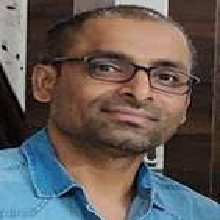
Abstract:
- Modeling of Sustainable Energy Systems using MATLAB and Simulink
- Introduction
- Modeling Physical Systems such as PV and Wind Turbine
- Designing control algorithms for power electronics
- Grid Integration
- Energy Management systems
- Development of Sustainable Transportation Systems using Simulink and Simscape
- Overview of vehicle electrification
- Challenges of EV modeling
- Model-based design approach for modeling EVs
- Motor Modeling & Control
- Developing and Implementing Digital Control for Power Converters
- Developing and Implementing Battery Management Systems
- Thermal management
Reference EV model simulation
- Drive cycle
- Variant components
- Hybrid architectures
- Design optimization
- Resources for Academia
Track 3 : 25/06/2021 Afternoon : 2.00 pm - 5.30 pm
Category: Half Day Tutorial
Date: 25th June 2021
Time: 2.00pm to 5.30 pm
Sponsor: Barclays
Topic: Cloud Transformation- Myths and Reality
Speaker:
Harsha Yale is responsible for Cloud Adoption across Markets along with Transformation and Strategy for Trade Management & Middle Office Technology in the Corporate and Investment Banking Division of Barclays. Harsha has spent the last 25 years dabbling in the technology of which with the last 16 years at Barclays and 7 years at Deutsche Bank prior to that. He has played various roles like Developer, Architect, Platform owner, Global Head, Regional Head of Technology, Programme Director across multiple regions.
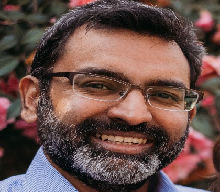
Speaker:
Shreepad Shukla is an Enterprise Architect in Applied Research & Development, Barclays CTO with a focus on applications of distributed ledger technology to digital money. He has 20+ yrs of technology experience with the last 13 years at Barclays. He has worked in payment systems technologies as a solution architect at Barclays, helping teams migrate to the cloud, and as a product consultant at Infosys’ Finacle.
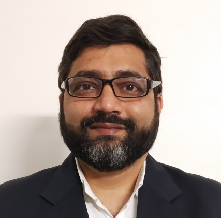
Abstract:
Join us in tracing the cloud journey of an enterprise and on the way we will bust some jargons, myths and look at some realities. We will explore what the cloud journey means for different businesses and different organizations of varying sizes. Discover the different flavors of transformation and see how these to suit different organizations and scenarios in meeting their goals. Look at some of the features and benefits. What leverage cloud would give the business and how they can benefit. Equally, we will look at some of the pitfalls and gotchas and how best to avoid or overcome them. The session will be an interactive one with plenty of opportunities for debate and to raise questions.
No prerequisites are other than a basic understanding of the technology.
Agenda – This will be tweaked as we put together the material over the next couple of weeks
Introductions
Pop up survey of audience
Overview of Cloud
Different flavors of cloud
Features and Benefit
Cloud Journey
Organization
Learning and Development
Platform
Discovery
Planning to succeed
Characteristics of financial services
Considerations and opportunities in Cloud
Key enablers
Call to action
Q&A
Track 4 : 25/06/2021 Afternoon : 9.00 am - 1.00 pm and 2.00 pm - 5.30 pm
Category: Full Day Tutorial
Date: 25th June 2021
Time: 9.00 am to 1.00 pm and 2.00 pm to 5.30 pm
Sponsor: Quantiphi
Topic: Cloud Computing and Big Data
Abstract:
- What is Cloud Computing?
- Why everyone is using this
- How the industry is using this to improve the approach for the development of Applications for reliable use and Learn to build Serverless applications on the cloud.
Speaker: Mr. Rahul Kushwah
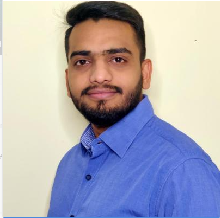
Mr. Rahul Kushwah is AWS and GCP certified solution architect Professional with full stack development experience. Played different roles like from Full stack developer to designing cloud-based solution for Dat lake and Data science platforms and also worked with ML Engineer to automate the ML pipelines.